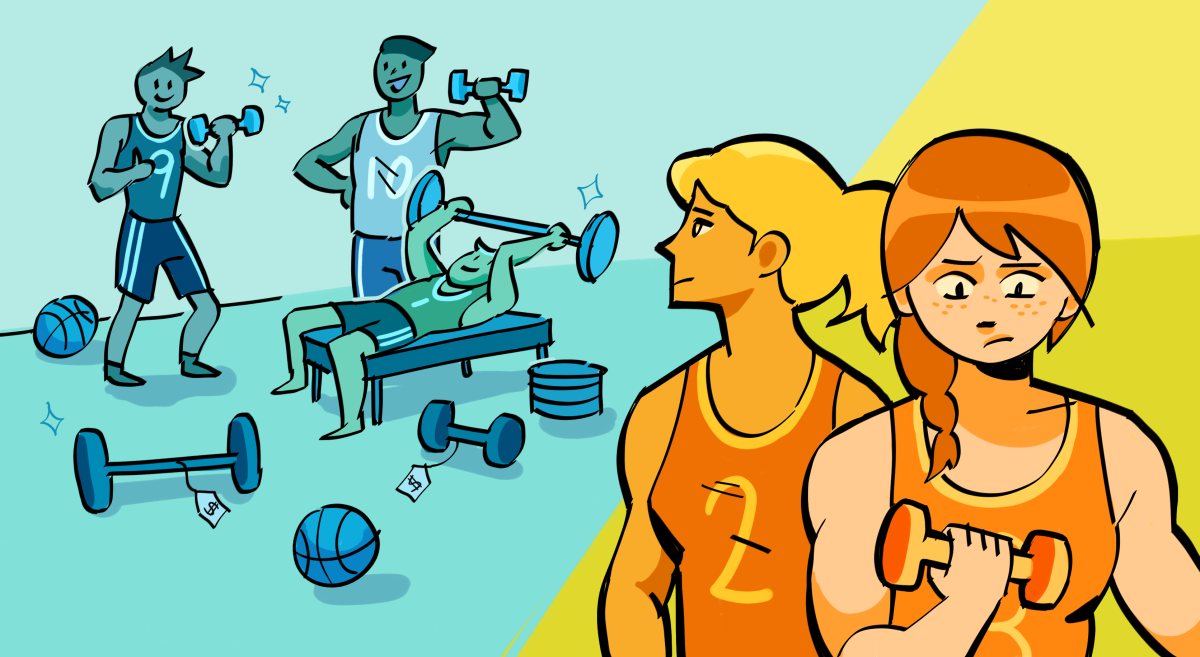
Illustration by Bianca Rader
The events that transpired over the weekend involving the NCAA are disappointing and unfortunately a worn-out narrative.
Women have been treated as second-class citizens for centuries and it should no longer be tolerated, especially in sports.
The NCAA hosted its highly anticipated annual tournaments from Thursday-Monday.
The tournaments are an intense weekend dedicated to male and female college basketball games that end with crowning a champion.
However, the tournament organizers dropped the ball this year and delivered another slap in the face to our society.
The weekend exploded when one female athlete shared a video on social media exposing stark differences between the male basketball teams’ resources in comparison to what the women were provided.
“Oregon University basketball player Sedona Prince called out the NCAA for disparities between the training areas provided for the men and women’s teams set to compete in March Madness,” according to a March 19 People article.
Prince’s video on the social media platform TikTok went viral after garnering attention from many people including Golden State Warriors star Stephen Curry, who retweeted the video on Twitter calling out the NCAA.
“Wow-come on now! @marchmadness @NCAA yall trippin trippin,” Curry said in a March 18th Twitter post.
What’s even more disappointing are the many comments left on Prince’s TikTok by viewers who were unaware of a women’s NCAA tournament in addition to the men’s March Madness.
The video’s online popularity was just the beginning and the conversation didn’t stop there.
As the weekend progressed, another video surfaced on social media showing drastic differences in the food and gift bag items male players were given versus what female players were provided, according to a March 19 NPR article.
As the controversy blew up on social media, the NCAA was quick to respond to the backlash. Dan Gavitt, the NCAA’s senior vice president of basketball, expressed the organization’s urgency to do better during a Zoom interview on March 20 with CNBC.
“I apologize to the women’s student-athletes, coaches, and committee for dropping the ball on the weight room issue in
San Antonio, we’ll get it fixed as soon as possible,” Gavitt said in the same CNBC interview.
The NCAA was true to its word and improved the equipment for female athletes, but that doesn’t erase what happened. It’s 2021 and issues such as these are still arising and emphasize how much work must be done.
It’s not OK for organizations to continue treating female athletes with less respect. Female athletes perform the same jobs and practice just as hard as their male counterparts.
“Women aren’t competing against men; they’re competing against other women,” read a June 2019 blog post published by The Swaddle, a media company focused on diverse perspectives. “They’re already playing at the top level according to the rules of their game, and they train accordingly, just like the top male [athletes] are training and playing toward the rules of their game.”
Female and male athletes all play the same game, train just as strenuously and put their uniforms on the same way. They should be treated as equals.